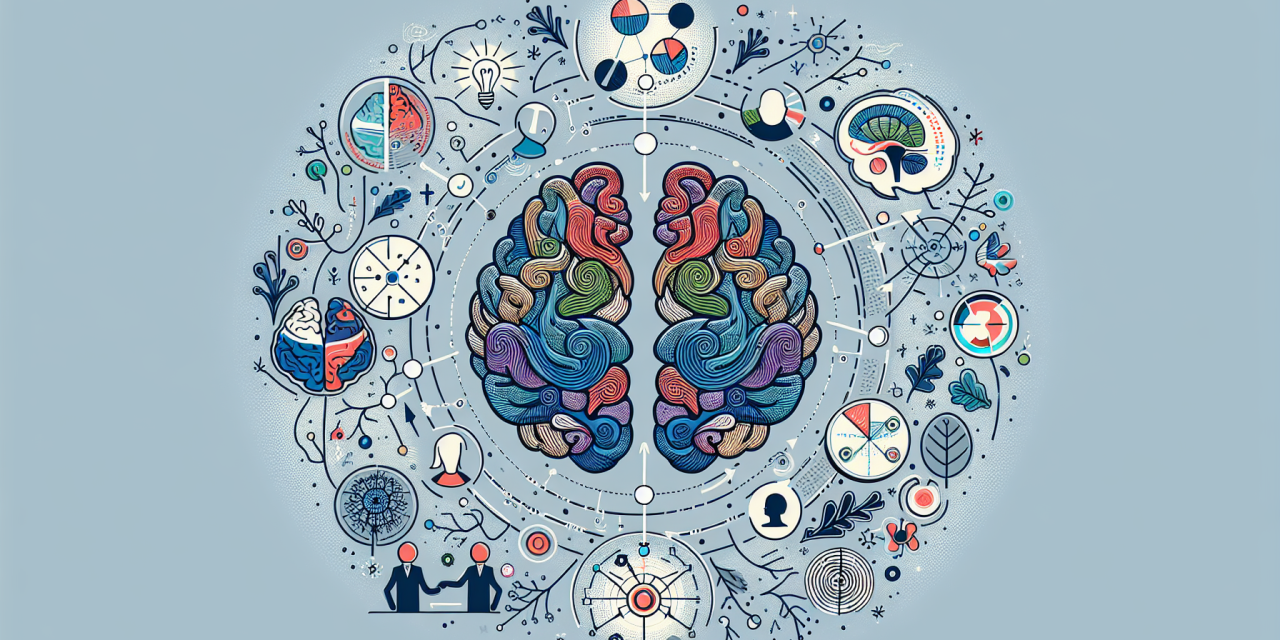Table of Contents
- Introduction
- Understanding Emotional Intelligence
- The Role of Emotional Intelligence in Leadership
- Developing Emotional Intelligence
- Strategies for Leaders
- Real-World Applications
- Frequently Asked Questions
- Conclusion
Introduction
In today’s fast-paced and ever-evolving workplace, emotional intelligence (EI) has emerged as a critical factor for effective leadership. Gone are the days when technical skills ruled the roost. Nowadays, leaders who exhibit high emotional intelligence tend to foster stronger teams, create more inclusive environments, and ultimately, drive better business results. In this post, we’ll dive into the psychology of leadership through the lens of emotional intelligence, exploring its significance, strategies for development, and practical applications.
Understanding Emotional Intelligence
Emotional intelligence, fundamentally, refers to the ability to recognize, understand, and manage our own emotions while also being attentive to the emotions of others. This dual awareness not only lays the foundation for personal well-being but also paves the way for meaningful interactions and relationships in a professional setting.
According to psychologists Peter Salovey and John D. Mayer, emotional intelligence encompasses four main components:
- Self-awareness: The ability to recognize and understand one’s own emotions, strengths, weaknesses, and values.
- Self-management: The capability to control impulsive feelings and behaviors, manage stress, and adapt to changing circumstances.
- Social awareness: The knack for understanding the emotions and perspectives of others, including empathy and organizational awareness.
- Relationship management: The skill of managing interactions and relationships effectively, including conflict resolution and inspiration.
The Role of Emotional Intelligence in Leadership
Leaders who lead with emotional intelligence create a culture of trust and collaboration. They actively listen to their team members, empathize with their challenges, and respond with compassion. Moreover, high EI allows leaders to navigate difficult situations with sensitivity and poise. Here’s how emotional intelligence plays a pivotal role in leadership:
Building Trust and Credibility
Trust serves as the cornerstone of any successful workplace. Emotional intelligence allows leaders to foster trust by being authentic and present, thereby demonstrating integrity and consistency in their actions.
Enhancing Team Collaboration
When leaders practice empathy, they enhance team collaboration significantly. Team members feel valued and respected, encouraging open dialogue and innovation.
Effective Conflict Resolution
Conflict is inevitable in any organization. However, leaders with emotional intelligence can address conflicts with understanding and compassion, seeking win-win solutions rather than fostering further disputes.
Developing Emotional Intelligence
While some people may naturally possess high emotional intelligence, it can also be developed through intentional practices. Here are some actionable steps leaders can take to enhance their EI:
Self-Reflection
Taking time to reflect on personal emotions and reactions fosters self-awareness. Keeping a journal can offer insights into behavioral patterns and emotional triggers.
Seek Feedback
Leaders should be open to receiving constructive feedback from peers and team members. This practice promotes self-improvement and helps leaders recognize blind spots in their emotional responses.
Practice Active Listening
Active listening goes beyond hearing words; it involves being fully present in conversations. Leaders should practice this skill to better understand their team members’ feelings and perspectives.
Strategies for Leaders
Now that we comprehend the importance of emotional intelligence, let’s explore several effective strategies that leaders can employ to cultivate EI within their teams:
Foster an Open Communication Culture
Leaders should encourage team members to express their thoughts and feelings freely. Doing so promotes transparency and strengthens team bonds.
Implement Team-building Activities
Regular team-building exercises can help members connect on a personal level, reinforcing relationships and understanding among the team.
Offer Training and Workshops
Investing in emotional intelligence training can yield long-term benefits for both leaders and team members. Programs like Leading with Emotional Intelligence: Essential Leadership Training equip individuals with essential EI skills.
Real-World Applications
When leaders effectively harness emotional intelligence, they create environments where people thrive. Below are some real-world applications of emotional intelligence in leadership:
Improving Employee Engagement
Leaders who connect emotionally with their employees create a more engaged workforce. This connection boosts morale and enhances productivity.
Promoting Diversity and Inclusion
High EI leaders understand and appreciate diverse perspectives. They actively promote inclusivity, which can lead to richer ideas and solutions.
Navigating Change with Grace
Change can be disruptive and challenging. Emotionally intelligent leaders can help teams navigate transitions smoothly by supporting them through uncertainties.
Frequently Asked Questions
What is emotional intelligence?
Emotional intelligence refers to the ability to recognize, understand, and manage one’s own emotions while being aware of and responsive to the emotions of others.
How does emotional intelligence impact leadership?
Leaders with high emotional intelligence build trust and credibility, enhance collaboration, and address conflicts more effectively, promoting a positive workplace culture.
Can emotional intelligence be developed?
Yes, emotional intelligence can be developed through practices such as self-reflection, seeking feedback, and active listening. Training programs can also help nurture these skills.
Conclusion
Leadership today requires more than just managing tasks and people; it demands emotional intelligence. By embracing and nurturing emotional intelligence, leaders can create environments that foster collaboration, innovation, and resilience. Not only will they see improvements in their teams, but they will also contribute to a more positive organizational culture. As leaders continue their journey of self-discovery and growth, it remains essential to engage with further resources and trainings. For those interested, you might find insightful content in articles like Mastering Planning, Negotiation, and Conflict Management, Unlocking the Power of Leadership with Oxford’s Program, Unlocking the Secrets of Strategic Planning and Management, Mastering People Management: The Key to Effective Leadership, and Empowering Global Leadership: The Advanced Management Program.





